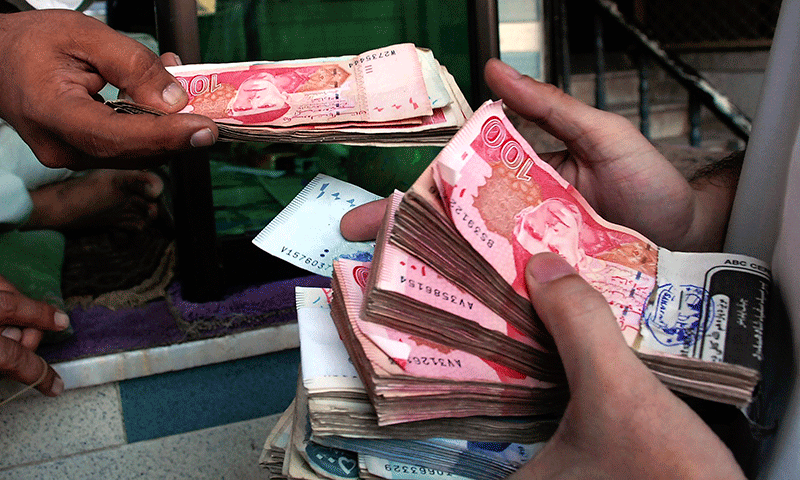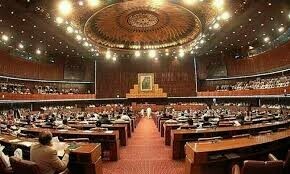LONDON, Sept 29: The severe financial market credit squeeze that emerged in early August had been brewing all year and policymakers warn of long-term consequences for the world economy.
Following is a timeline of key events in the crisis so far:
Q4, 2006: US housing market slows after two years of steady increases in official interest rates. Delinquency rates on subprime loans rise to 13 per cent from 10 per cent seen in 2004 and 2005, leading to a wave of bankruptcies at subprime lenders. Interest rate spreads on Collateralised Debt Obligations, repackaged bonds and loans which included some subprime US mortgage debt, widen sharply in December and January of 2007.
Feb 8, 2007: HSBC says more funds will have to be set aside to cover bad debts in its US subprime lending portfolio. California’s New Century Financial Corp -- the US’s third-largest subprime lender -- said it expected a Q4 2006 loss. Spreads on non-investment tranches of home equity CDOs widen more than 200 basis points in the two days that follow.
Feb 27: Global equity prices plunge as jitters about the US housing market combine with a 10 per cent drop in China’s main stock index.
June 20: Two Bear Stearns-managed hedge funds announce double-digit losses through April after making bad bets on securities backed by subprime loans. They sell $4 billion of assets to cover investor redemptions and expected margin calls. Merrill Lynch sells off assets seized from the funds.
July 10: Credit ratings firm Standard & Poor’s said it may cut ratings on some $12 billion of subprime debt. US firms Home Depot Inc and D.R. Horton Inc issue warnings about the housing market. Credit spreads widen sharply. Interest rate spreads measured by the iTraxx Crossover index, a widely-watched barometer of credit sentiment, jumps 20 basis points to 270 -- up almost a percentage point from record lows under 188 basis points on June 1.
July 17: Bear Stearns says two hedge funds with subprime exposure have “very little value”; credit spreads soar.
July 19: S&P slashes ratings on some top-rated mortgage bonds by eight notches.
July 26: Credit spreads leap above 380 bp as loan deals for some key leveraged buyouts such as Alliance Boots are put on ice. Japanese yen surges as risky high-yield currency plays start to unwind amid generalised market stress.
July 30: German industrial bank cuts earnings targets for 2007-08 financial year, citing losses related to US subprime mortgages. iTraxx balloons to record highs above 500 basis points. After four days of heavy losses, world stock market indices hit their lowest level in almost three months and European equity indices hit 5-month lows.
July 31 - Aug 1: American Home Mortgage Investment said it may have to liquidate assets, fuelling concerns about the spill-over of subprime losses into other areas. Australia’s Macquarie Bank warned that retail investors face losses of up to a quarter in two of its high-yielding bond funds.
Aug 7: US Federal Reserve leaves interest rates unchanged at 5.25 per cent, saying economic growth remains moderate despite tighter credit and inflation risks remain its main concern.
Aug 9: European Central Bank adds 94.8 billions euros of one-day funds to money markets as interbank lending dries up amid concern about banks’ subprime exposure and after overnight borrowing rates surge to 4.6 per cent. The move followed news from French bank BNP Paribas that it froze $2.2 billion worth of funds, citing subprime problems.
The Fed and Bank of Canada add liquidity to their banking systems later in the day. Germany’s Bundesbank organises meeting to rescue IKB. German bank regulator Bafin said it was looking into the $17.5 billion special funding vehicle of German state bank SachsenLB, raising concerns about structured investment vehicles and bank-sponsored conduits heavily dependent on short-term finance.
Aug 17: US Fed surprises markets by cutting its discount rate for direct loans to banks by half a percentage point to 5.75 per cent, saying downside risks to growth from tightening credit markets had increased appreciably. World stock markets surge from 5-month lows. SachsenLB said German savings banks had provided a credit facility of 17.3 billion euros to secure the liquidity of its Ormond Quay conduit.
Aug 21: Britain’s Barclays Bank borrows 314 million pounds from the Bank of England’s standing lending facility, the first use of the penalty rate facility since the credit crisis began. Barclays taps the central bank for emergency funds of some 1.6 billion pounds for a second time on August 30, citing a technical hitch in the UK clearing system.
Sept 6: ECB leaves interest rates on hold at 4 per cent, seen as at least a postponement of the interest rate rise it had appeared to signal in early August.
Sept 13: British mortgage lender Northern Rock applied to the Bank of England for emergency financial support, according to news reports, sparking a run on the bank’s deposits from worried savers in the days that follow.
Sept 17: British finance minister Alistair Darling says the government will guarantee all existing deposits at Northern Rock.
Sept 13-18: Concern about a rollover of some $113 billion in maturing commercial paper borrowings, the asset-backed segment of which many SIVs and conduits depend on for routine finance, keeps London interbank borrowing rates elevated at more than half a percentage point above central bank targets. The rollover eventually proceeds without panic.
Sept 18: US Fed cuts its key Federal funds target rate and discount rate by half a percentage point to 4.75 per cent and 5.25 per cent, respectively, saying the cuts were a pre-emptive move to neutralise the impact of the financial market turmoil on the broader US economy. World equity and credit markets rally.
Sept 19: Bank of England offers to inject 10 billion pounds of emergency three-month funds into money markets at penalty rates but accepting a wider pool of assets as collateral.
Sept 18-20: US investment banks start reporting third-quarter earnings, with mixed overall results. Goldman Sachs recorded $1.71 billion in losses in leveraged loans earmarked for buyout. Bear Stearns recorded losses of $200 million related to its hedge fund problems.
Sept 24: Germany’s Deutsche Bank could record third-quarter losses on its loan book of up to 1.7 billion euros, sources tell Reuters, as it estimates a 4-6 per cent writedown of loan values.
Sept 24-25: The International Monetary Fund’s Global Financial Stability report says problems in the credit and money markets will likely recur for some time and tightening of credit conditions will slow the global economy. The Group of Seven’s Financial Stability Forum holds a closed-door meeting at the New York Fed and aims to report on the credit crisis October 19-20’s G7 finance meeting in Washington.
Sept 26: European money markets remain tight as ECB allots 50 billion euros of three-month refinancing at 4.63 per cent -- its highest since March 2001. Recent easing of sterling interbank rates meant the Bank of England received no bids for three-month funds at a penal 6.75 per cent, which was more than 50 basis points above prevailing market rates. The move eases residual concern another UK bank may need the facility.—AFP














































Dear visitor, the comments section is undergoing an overhaul and will return soon.